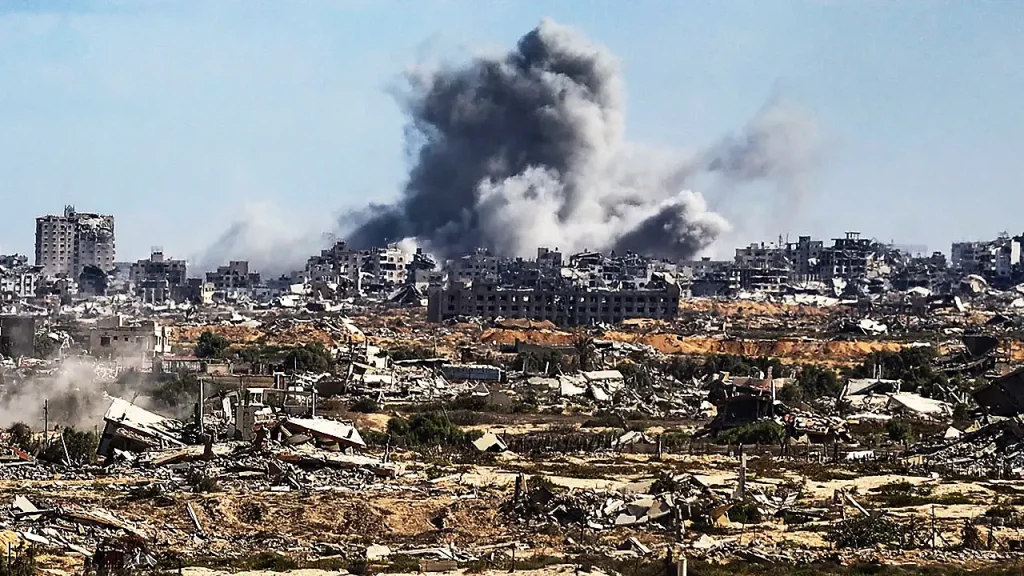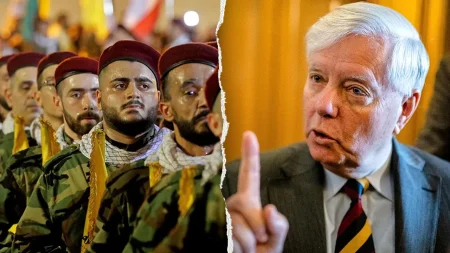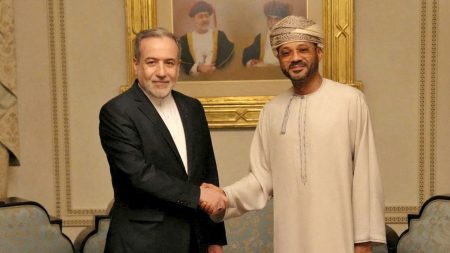Israel-Hamas Negotiations Begin as October 7th Anniversary Approaches
In a significant diplomatic development, chief negotiators from Israel and Hamas gathered in Egypt’s resort city of Sharm El Sheikh on Monday to discuss the details of President Donald Trump’s peace plan aimed at ending the devastating conflict and securing the release of 48 hostages still held in Gaza. The high-stakes talks come just one day before the somber second anniversary of the October 7th Hamas attacks on Israel, which claimed approximately 1,200 lives and saw 251 people abducted into the Gaza Strip. This meeting follows Hamas leadership’s apparent acceptance of portions of the 20-point blueprint for peace, offering a glimmer of hope in what has been a protracted and bloody conflict that has devastated countless lives on both sides.
President Trump has taken an active role in the peace process, urging negotiators to “move fast” while expressing optimism about Hamas’ response to the proposed deal. In a notable shift, Trump called on Israel to “immediately stop the bombing of Gaza,” a statement that coincided with reported reductions in Israeli military operations over the weekend. However, the situation remains volatile, with Reuters reporting that 36 people, including children, were killed in a series of strikes across Gaza that hit residential buildings. The delicate balance between military pressure and diplomatic progress highlights the complex challenges facing negotiators as they work toward a sustainable resolution that addresses the security concerns of Israel while alleviating the humanitarian crisis in Gaza.
The U.S.-backed peace plan contains several key provisions that have become focal points of the negotiations. Under the proposed agreement, all hostages, both living and deceased, would be returned within 72 hours of Hamas accepting the deal. Additionally, the plan calls for the withdrawal of Israeli forces from Gaza and the complete disarmament of Hamas, with members of the group being granted amnesty in exchange for laying down their weapons. Those Hamas members wishing to leave Gaza would be provided a path to relocate to third-party nations willing to accept them. However, reports suggest Hamas remains skeptical about fully disarming and has expressed concerns about Israel’s long-term military intentions in Gaza once the hostages are returned. Hamas has also flagged the three-day timeframe for returning all hostages as potentially unrealistic, particularly regarding the deceased, some of whom are believed to be buried under rubble.
Despite these challenges, the negotiations represent the most promising opportunity for peace since the conflict began. Israel’s delegation includes officials from the intelligence agencies Mossad and Shin Bet, along with Prime Minister Benjamin Netanyahu’s foreign policy adviser Ophir Falk and hostages coordinator Gal Hirsch. The Hamas delegation is led by Khalil Al-Hayya, who survived an Israeli airstrike in Doha, Qatar last month that targeted top Hamas officials. The presence of high-ranking officials from both sides underscores the seriousness with which this peace initiative is being approached, though significant obstacles remain to be overcome before a final agreement can be reached.
In a moving development that highlights the human impact of this conflict, the Hostages and Missing Families Forum wrote a letter to the Nobel Peace Prize Committee on Monday, nominating President Trump for his efforts to end the war and secure the return of the hostages. This gesture from families who have endured unimaginable suffering serves as a poignant reminder of what’s truly at stake in these negotiations—the lives of innocent people caught in the crossfire of a conflict that has inflicted immeasurable pain on Israelis and Palestinians alike. The nomination reflects the families’ desperate hope for a resolution that will bring their loved ones home and end the cycle of violence that has claimed too many lives on both sides.
As the world watches these critical negotiations unfold, the path to peace remains fraught with challenges. Trust between the parties is minimal after years of hostility and recent violence, and each side brings to the table deep-seated concerns about security, sovereignty, and justice. Yet the fact that negotiations are happening at all represents a crucial step forward. The coming days will reveal whether this diplomatic initiative can overcome the substantial obstacles that stand in the way of a lasting peace agreement. For the families of hostages, for civilians in Gaza facing humanitarian crisis, and for Israelis living under the threat of attack, these talks may represent the best hope for ending a conflict that has brought immense suffering to the region and establishing a framework for a more stable and peaceful future.














